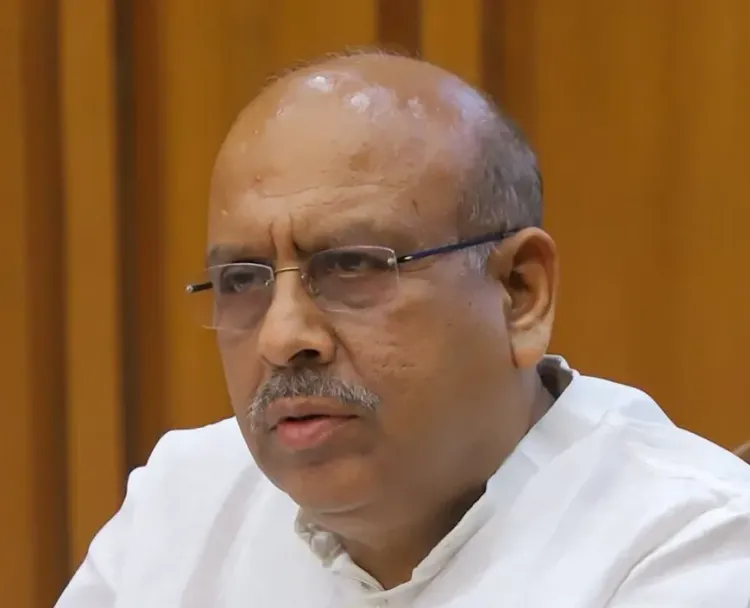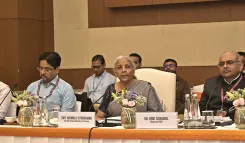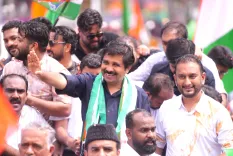How Does Delhi Speaker Encourage Young Leaders to Value Integrity?

Synopsis
Key Takeaways
- Importance of integrity in public service.
- Role of youth in promoting democratic values.
- Engagement between youth and legislative institutions.
- Enhancing transparency through innovations like APMS.
- Commitment to sustainability with solar initiatives.
New Delhi, June 23 (NationPress) Delhi Assembly Speaker Vijender Gupta on Monday highlighted the essential role of legislative institutions in fostering a vibrant democracy and encouraged young leaders to engage in public service grounded in integrity.
Speaker Gupta shared his insights while engaging with a youth delegation of 45 individuals from various parts of India, who are participating in the National Governance Tour 2025.
Gupta welcomed the delegation at the Delhi Legislative Assembly, urging them to serve as champions of democratic values, transparency, and public accountability in their future endeavors, thereby narrowing the gap between youth leadership and institutional governance.
This group, comprising students from prestigious institutions such as IITs, IIMs, and NLUs across all 28 states, engaged in a thought-provoking discussion with the Speaker centered on the theme “Enhancing Legislative Transparency and Accountability in Urban Governance.”
The dialogue delved into reforms and innovations aimed at boosting public engagement and institutional oversight within Delhi’s legislative framework.
While addressing the delegates, Gupta commended their thorough research on good governance and legislative reforms, appreciating their contributions during a lively 20-minute interactive session.
“This Assembly is for the people. Your active participation and curiosity exemplify the promise of India’s democratic future,” asserted Gupta.
He underscored several ongoing reforms and progressive initiatives taking shape within the Delhi Legislative Assembly.
Gupta informed the delegation about the Assembly's recent adoption of the Central Government’s Audit Para Monitoring System (APMS), enabling real-time tracking of audit issues raised by the Comptroller and Auditor General (CAG).
This initiative signifies a major advancement toward enhancing institutional transparency and accountability in legislative operations, he noted.
The Speaker also mentioned the installation of a 500 kW solar power plant within the Assembly complex, expected to be operational by July, which will save nearly Rs 2 crore annually on electricity costs.
Gupta emphasized that this project showcases the Assembly’s commitment to both environmental sustainability and fiscal responsibility.
Furthermore, the Speaker shared notable milestones in India’s legislative history, recalling the passage of the Rowlatt Act on March 18, 1919, in Delhi, where Mahatma Gandhi was present in the visitors’ gallery during the debate and later addressed the public outside the Assembly.
Gupta reflected that this instance remains a testament to the long-standing tradition of civil resistance and public involvement in India’s democratic evolution.






